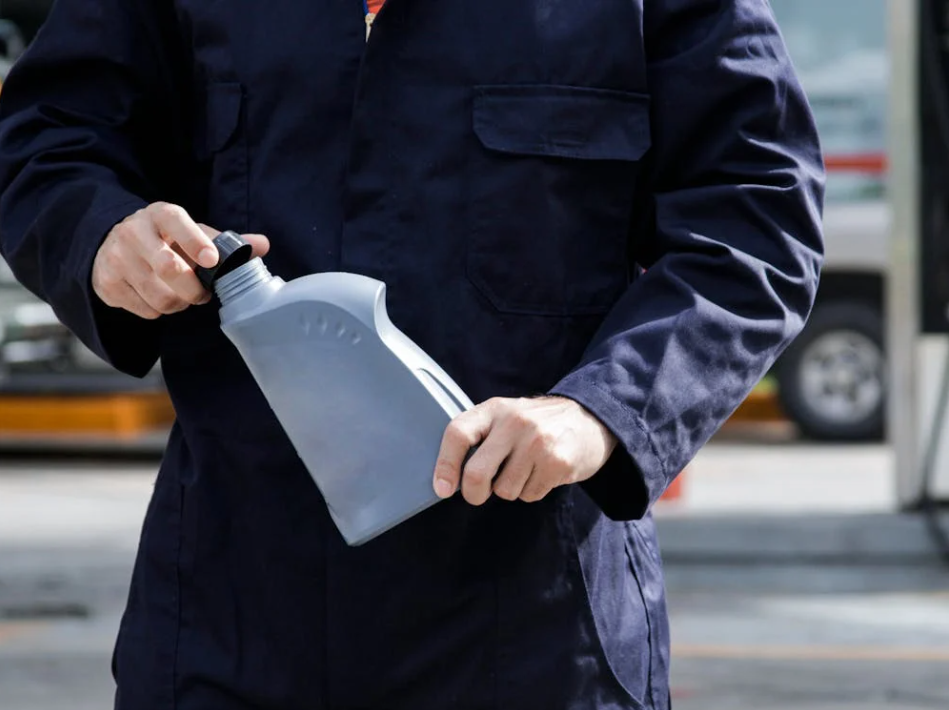Warning: Object of class WP_Post could not be converted to int in /home/u155876884/domains/automoteve.com/public_html/wp-content/plugins/poststreamline/poststreamline.php on line 558
Every time you hit the road, your engine is hard at work — generating power, managing combustion, and producing heat. To keep all of that running smoothly, clean engine oil is absolutely essential. But clean oil doesn’t stay clean for long. That’s where your oil filter steps in. Often overlooked, the oil filter plays a critical role in protecting engine components and ensuring long-term vehicle reliability.
So, what exactly does your oil filter do, and why does it matter so much for engine longevity? Let’s break it down.
What the Oil Filter Actually Does
Every time your engine runs, oil circulates through it to lubricate components like pistons, camshafts, bearings, and valves. Along the way, this oil picks up microscopic metal shavings, carbon deposits, dust, and other debris. Left unchecked, these contaminants can become abrasive, damaging internal engine parts and accelerating wear.
The oil filter traps these particles and prevents them from recirculating. It acts like a fine-mesh sieve, filtering the oil before it makes its way back through the system. Without a properly functioning oil filter, your engine would essentially be lubricated by dirty, abrasive fluid.
Types of Contaminants Oil Filters Remove
Here’s what oil filters are designed to capture:
● Metal particles: From internal friction between engine parts
● Carbon soot: Produced during combustion
● Dirt and dust: Especially if the air intake system isn’t sealed well
● Sludge and oxidised oil: Resulting from old or overheated engine oil
● Gasket debris: When seals and gaskets begin to degrade
Over time, these contaminants build up and cause engine parts to grind, clog oil pathways, or form deposits that reduce performance.

Regular oil checks help identify contamination and ensure filters are doing their job.
The Dangers of a Clogged or Worn-Out Oil Filter
An oil filter is not a lifetime component. Over time, the filter material becomes saturated with debris, reducing its ability to clean the oil. A clogged filter can trigger the bypass valve, allowing dirty oil to flow freely through your engine. While this prevents catastrophic failure from oil starvation, it exposes delicate parts to harmful particles.
Worse, if the filter is severely compromised, it may cause:
● Increased engine wear
● Oil pressure drops
● Sludge formation
● Restricted oil flow to bearings and camshafts
● Overheating from friction and insufficient lubrication
These conditions all accelerate engine degradation, and some can lead to total engine failure if left unresolved.
How Often Should You Replace Your Oil Filter?
While it’s tempting to follow national oil change recommendations (often 7,500–10,000 miles), that may not suit your actual driving conditions. In hot, stop-and-go, or high-mileage driving environments, the oil and filter work harder and need replacing more often.
The experts at Platinum Wrench Auto Repair typically recommend changing your oil filter with every oil change, which for many vehicles means every 3,000 to 5,000 miles. This ensures your engine oil stays clean and your filter doesn’t become a liability.
Anatomy of an Oil Filter
A modern oil filter is more than just a metal canister. Inside, it features:
● Filter media: Usually made of synthetic fibers or cellulose, this material traps particles as small as 20–30 microns (about half the width of a human hair).
● Anti-drainback valve: Prevents oil from draining out of the filter when the engine is turned off, ensuring oil pressure builds quickly at startup.
● Bypass valve: Opens if the filter becomes clogged, allowing unfiltered oil to continue circulating. While not ideal, this prevents catastrophic oil starvation.
● End caps and center tube: Support the filter material and direct oil flow properly.
Each component works together to maintain clean oil circulation and consistent lubrication under pressure.
What Happens When You Neglect the Oil Filter?
Many drivers assume an oil change means just replacing the fluid, but reusing or skipping the filter is a mistake. Here’s what can happen:
1. Premature Engine Wear
Contaminants that aren’t removed by a filter circulate freely, causing friction and damaging cylinder walls, crankshafts, and bearings. Over time, this reduces compression and performance.
2. Reduced Oil Flow
A clogged filter restricts oil flow, which means your engine doesn’t receive the lubrication it needs. This can lead to overheating or even engine seizure.
3. Bypass Mode Activation
When filters are too full, the bypass valve opens to maintain pressure. That means dirty oil circulates through the engine—better than no oil, but far from safe.
4. Oil Pressure Issues
A saturated or poorly made filter can disrupt the balance of the oil pressure system, triggering warning lights or poor engine performance.
Are All Oil Filters the Same?
Not all oil filters are created equal. Cheaper filters often use low-grade materials and have less effective filter media. These budget filters may:
● Have a smaller surface area for filtration
● Clog more easily
● Lack durable valves or leak-proof seals
It’s important to use a high-quality filter that matches your vehicle’s specifications. A poorly fitted or low-grade filter can leak, dislodge, or fail under pressure.

Signs Your Oil Filter May Be Failing
Watch for these warning signs:
● Decreased fuel economy
● Ticking sounds from the engine
● Oil pressure warning light
● Overheating
● Dirty or dark engine oil shortly after a change
If you’re seeing any of these symptoms, it’s best to schedule a vehicle diagnostic check with a professional technician.
The Bottom Line: A Small Part That Does a Big Job
Your oil filter might be a small, inexpensive component, but it plays a huge role in protecting your engine from premature wear. Regular oil and filter changes are among the most effective — and affordable — ways to extend your engine’s lifespan and avoid major repairs.
Think of your filter as your engine’s first line of defense. A high-quality filter combined with the right oil will keep your vehicle running cleaner, smoother, and longer.
Trust Your Oil Service to the Experts at Platinum Wrench Auto Repair
At Platinum Wrench Auto Repair, the professionals treat every oil service as an investment in your vehicle’s health. They use only quality filters and oil suited to your car’s make, model, and mileage.
The experts also check for early signs of wear, leaks, or sludge formation, giving you peace of mind on every drive.
Need a car oil change or unsure when your last one was? Schedule your service with us today and give your engine the protection it deserves.



